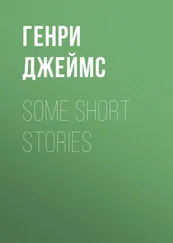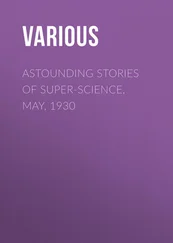Dima realized that at that very instant his own finger had been inching toward his nose.
“ Bozhe moi, Oleg Borisovich, who do you think they are? Monkeys from the zoo? You are underestimating us,” Anna Glebovna said, waving her hands as if they were fans. “These are not just some street children who spend their days chasing neighborhood dogs. These are the most talented and dedicated young musicians in all of Magadan.”
Dima craned back his neck. Faina Grigorievna sat in the last row, her gaze frighteningly calm, as usual. She wore her famous mustard shawl and giant amber earrings, into which he had stared so many times while she scolded him during lessons — he’d seen his whole life in those caramel globes. She was one of the largest people in the room and definitely had the largest head. Her short, yellow hair made it look as if she were wearing a hat made of fox fur.
Dima’s small mother sat next to Faina Grigorievna, slightly leaning away. When they had first come in, his mother sat down in the front with Dima and all the children, and wasn’t noticed until halfway through the producer’s first round of explanations. She had to be escorted to the back row while everyone watched.
She gave him a fugitive smile, then lowered her head. Poor Mama, she’d always been afraid of Faina Grigorievna. It shouldn’t take long. Playing time was under a minute, and he knew his piece forward and backward.
“All right, Anna Glebovna, let’s begin,” the producer said. They made an awkward bow to each other and took their respective positions: the producer behind an arsenal of monitors in the left corner, and Anna Glebovna on a chair in the right corner. The producer, boom operator, and both cameramen put on their headphones. “Control room ready?”
A young woman, who’d been napping behind a glass window in the back, started. With her face blue from the monitors’ glow, she looked like a fairy. “Ready, Oleg Borisovich,” her voice crackled over the intercom.
There was a pause.
“Anna Glebovna!” the producer yelled.
“Oh.” Anna Glebovna jumped off her chair. Its legs scraped shrilly against the floor. “First up is Dima Ushakov, from the Magadan College of Arts. The special section for gifted children,” she added with a smug smile.
“Silence in the studio,” the producer yelled. The cameramen stuck their faces into the viewfinders. “Cameras rolling. And action!”
Dima stood up — no floor scraping — and marched confidently to the piano, even though the pattern of black-and-white four-leaf clovers on the studio floor made him dizzy. He looked into the camera pointed at him, then at the camera pointed at an angle at him and the audience, then back at the first camera. Breathe. He saw the boom operator move, and the microphone lowered closer to his head, like a big, hairy spider dangling from the foliage of lights that covered the ceiling. He fought every urge to look up. Breathe.
“Dima Ushakov. Nine. Nine years old,” Dima said, looking somewhere between the main camera and the blue-faced girl in the control room. The microphone crept closer to his head. “‘March of the Wooden Soldiers,’” he said louder. Anna Glebovna nodded maniacally in the background.
He sat down and was immediately blinded by a panel of lights. Another microphone had been snaked into the innards of the piano. So much fuss over such a short piece, the march. He looked at the keys: white black white black white white black white. A row of tombstones. Stop, must not think of tombstones or snakes, he thought. Spiders either.
He took a deep breath, then caught himself halfway through the exhale, remembering that he was not supposed to make any noise. He noticed a big round clock on the wall, as obvious as a harvest moon: 12:04. Stop looking, Dima thought, and squeezed his thigh. Yesterday, he’d lied to his best friend, Genka, that he would be absent from school because he was going to the dentist to fix twenty cavities. He said he’d be knocked out under anesthesia all day. Genka had swallowed the fib; he was so naive. Maybe Genka wasn’t qualified to be the leader of their new gang, after all. The Uncatchable Avengers, oh. Just thinking about it made Dima’s skin all goose-bumpy. But not now, not for the next minute. Afterward. Save it for their inaugural meeting at the abandoned construction site behind the school — their secret headquarters. Genka said they would make up secret hand signs. It was a start.
Still 12:04. A piece of black wire stuck out above the dial like a curl. Head, heart, hands, ears — Dima went through the preplay checklist and cupped his hands around his knees to give them the proper shape. He imagined the vast green field where the soldiers would be marching, the sun like a big golden shield sending fiery arrows into his chest to activate his nutro, which is not a muscle or an organ, though sometimes it acts like both. Or either. Faina Grigorievna said to think of it as a little clay oven that hangs between the stomach and the heart. It’s where the stories and ideas about each piece of music are converted into a winged feeling, a bubbling fuel that makes the black dots on paper come alive. Whenever Dima felt his arms begin to tire, Faina Grigorievna sensed it. She got up from her chair at the back of the classroom and, if she’d been filing her nails, poked his lower spine with the sharp tip of the nail file. This always woke up his sleepy, sometimes frozen nutro . His arms felt immediate relief, the notes began to string together again. Sometimes she clapped above his head or banged on the higher or lower register as he played. One time, she knocked down the keyboard cover so suddenly that Dima only just managed to pull out his fingers. She knew how to set him back on track.
Nonpianist people had a nutro, too, Faina Grigorievna said, but for most it remained underdeveloped and underutilized. As was obviously the case with the whole Children’s Music School #1. Dima wondered whether his nutro could be used for the Avengers business as well, whether it could make him a better, stealthier Avenger. Genka would laugh. His nutro must be like last year’s shriveled plum.
Dima held his hands over the keys. Ears, head, et cetera. All systems on. Three, two, one …
Plop. He got the first chord right.
— TaTaTatitati TaTa Tatitati …
The soldiers are marching across a wide green field. Faina Grigorievna told him to imagine the field, though the real soldiers must’ve had better things to do than march through fields. For example: march through the town square, where they could keep an eye on the unruly citizens and flaunt their military regalia. Genka talked about making a badge they could pin on their school uniforms to distinguish them from the common troublemakers and hallway racers. Then what? The soldiers had war; the Avengers had nothing to avenge. Yet.
Dima forgot whether the upcoming drumroll of sixteenths in the left hand was to be played by one finger or different fingers. His fingers went on playing, though, of their own accord.
— Ta Ta Ta Ta Tatitatita tititata …
As soon as he played the drumroll with one finger — a poky second — he knew it was wrong. It had to be first, fourth, third, second, then first!
His wrists clamped up; the rest of the march’s familiar topography crumbled. He stopped.
“Cut!” the producer yelled and yanked off his headphones. “Anna Glebovna!”
Anna Glebovna slid off her chair and waddled up to Dima.
“Ushakov,” she said. She had a mole on her nose that sprouted fine yellow hairs.
A hack.
Dima now remembered Faina Grigorievna talking about treating your fingers with respect and giving each one a little deserved rest. That’s why, after all, you had ten of them, not two. The moon clock showed five minutes past noon.
Читать дальше
Конец ознакомительного отрывка
Купить книгу












